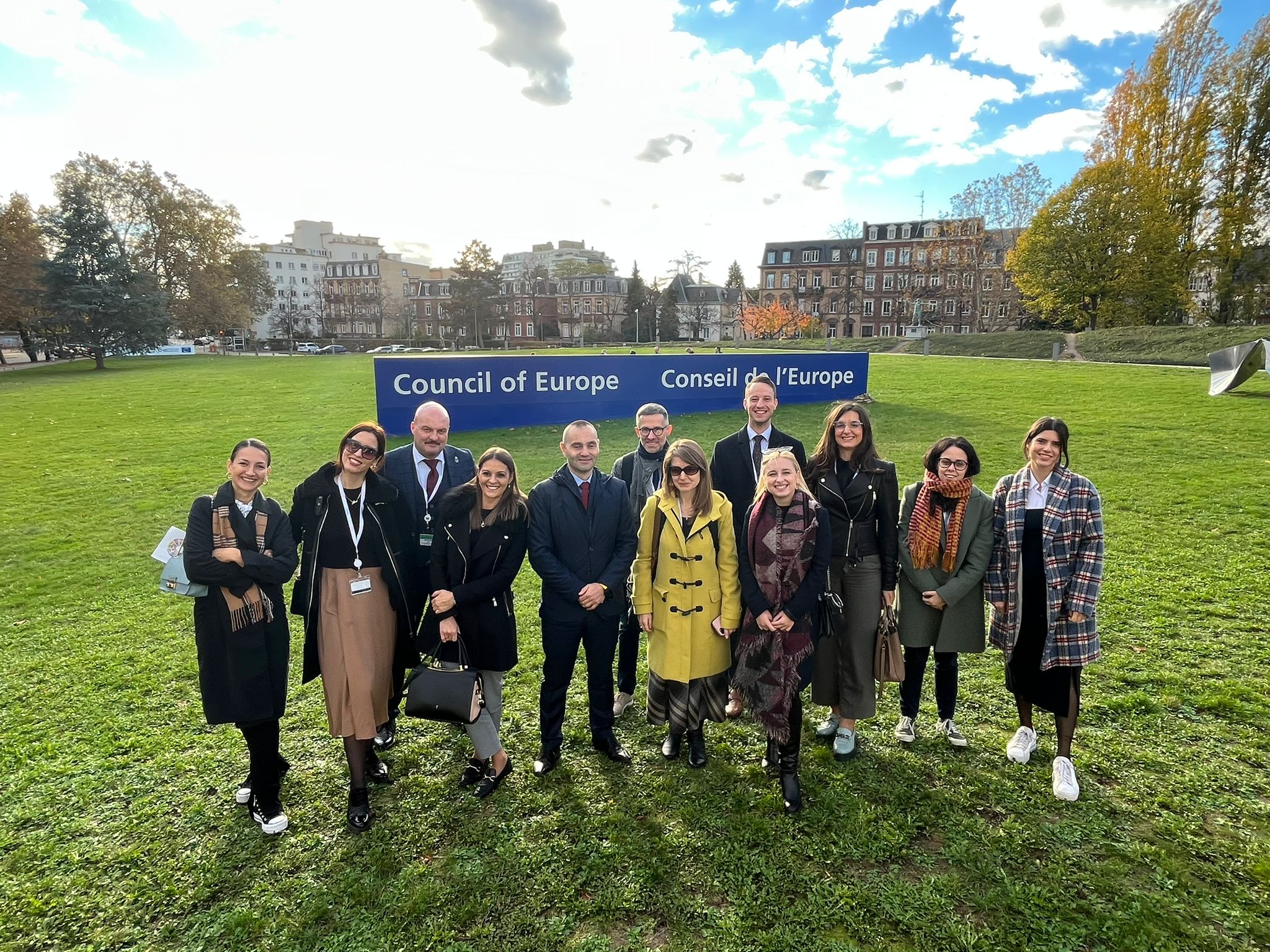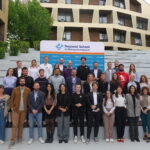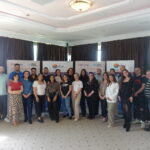The main theme of the 11th World Forum for Democracy organized by the Secretariat of the Schools of Political Studies of the Council of Europe was democracy=peace? The relevant panelists and more than 200 participants from different parts of the world attempted to provide answers to this initially rhetorical question. The forum, largely dedicated to topics that interest young people, predictably addressed pressing issues that concern all—ongoing wars, endangered human rights, and the status of equality when discussed in public. While some panels struggled to always provide a definitive answer to the posed question, it was encouraging to see that young people worldwide are informed, have a good understanding of current geopolitical issues, and, perhaps most importantly, possess a high level of empathy.
The Serbian delegation participated in the forum as the culmination of the Annual Seminar of the Foundation BFPE for a Responsible Society. I was among the members, thanks to the recommendation of a colleague, also a journalist, who had gone through the program a few years ago. It was an opportunity for direct learning about the functioning of European Union institutions and for a broader discussion on everything previously covered in the year-long program. For individuals (like us) in the media world in Serbia, who often cannot be where they would like and should be, attending the forum in this form is valuable in itself. The visit to the European Court of Human Rights in Strasbourg was significant for everyone, regardless of whether they came from the world of politics, law, business, civil society, etc. The information that the majority of complaints from Serbia relate to violations of labor rights during bankruptcy proceedings can be analyzed from various perspectives. The fact that the Court is structured to minimize the possibility of conflicts of interest is, at the very least, useful and encouraging. These pieces of information were important to me, especially at a time when Serbia is in the process of joining the European Union, aligning itself with its numerous principles, while, on the other hand, there is a certain level of distrust among citizens towards this community. In between is primarily insufficient information, and that’s why I approached the visit from the perspective of those who are confused but also from my own.
My intention was to observe as much as possible because I still consider the power of the media in shaping people’s opinions strong, with maximum responsibility for our role. In addition to the introductory plenary sessions, which officially opened the forum, we were able to attend the so-called laboratories. Some of the topics we heard about were the culture of memory and methods of learning about it, women, democracy, and peace, the art of dialogue, knowledge as power, etc. In most of them, it could generally be heard that young people are the most important for the future of democracy, and it is essential to present its achievements to them in a timely manner and politically educate them. However, it is clear that not all young people around the world have the opportunity for that. Namatai Kwekweza from Sudan, the recipient of the Kofi Annan NexGen Democracy Award and thus garnering the most reactions, spoke about what life is like where basic human rights are often not fulfilled, and consequently, democratic values are not upheld. Her speech shattered affirmative ideas about militarism in Africa as a mechanism for protecting people, if anyone ever had such ideas.
The feminist question was present in almost every debate but through a much broader prism than the right to equality. It could be heard that the immediate cause of wars is the lack of diverse opinions, resulting in the collapse of democracy, suppression of peace movements led by women and ageism, especially towards young women and particularly in countries like Afghanistan and Iran where religious fundamentalism still dominates. Experts, panel participants, used the opportunity to explain that peace is never guaranteed and that the essence of democracy is to resolve conflicts, involving the largest number of people in the discussion, with some criticism towards certain countries that are declaratively democratically organized but not so in practice.
Claims were also made that war, unfortunately the most topical issue for everyone, is the result of politicians attempting to lead their countries and is therefore inseparable from politics. This is a well-known assertion that many of us fight against through education, activism, and participation. Participants from Russia were not present at the World Forum for Democracy due to the exclusion of that country from the Council of Europe, and when discussing the ongoing failure to end the war in Eastern Europe, we heard that the European Union directs 65% of its GDP to support Ukraine on its path to victory. However, young people raised open questions about how and why the world has again reached a devastating state—frequent wars. This is a question that they will have the opportunity to ponder in their positions until the next forum, insisting that they want to be more involved, emphasizing that they want to participate in building societies in which they live.
An important goal of the World Democracy Forum is to support emerging leaders, and especially for them, coming to Strasbourg was an opportunity to exchange views on the future of democracy, ideas about its application in different societies. This was a challenge for many of them. Understanding different ways of thinking, motives, levels of political maturity, and views on the future. Due to the specific format of plenary sessions and laboratories, which involve debate, it was not bad for anyone to wait for their moment for a question, answer, silence, or waiting for another chance when the time comes. This is an essential lesson in maturity on the path to the maturation of young intellectuals, future leaders, hopefully, in more genuine democracies in Europe and beyond.
Text written by: Ana Bojović
Ana Bojović was born in 1993 in Novi Sad, and in 2017, she graduated from the Department of Media Studies at the Faculty of Philosophy in the same city. She currently works as a journalist and editor at Radio Television Vojvodina in the news program. She is the author of several programs in the field of culture, aimed for young people, with the idea of critically observing the language of film. The majority of her working time is currently devoted to shaping and analyzing news from internal politics. Her sphere of interest particularly relates to the social and health system of Serbia, cultural policy, and higher education. Since the news requires following all current events, her task is to continuously monitor and analyze all social phenomena and trends.













